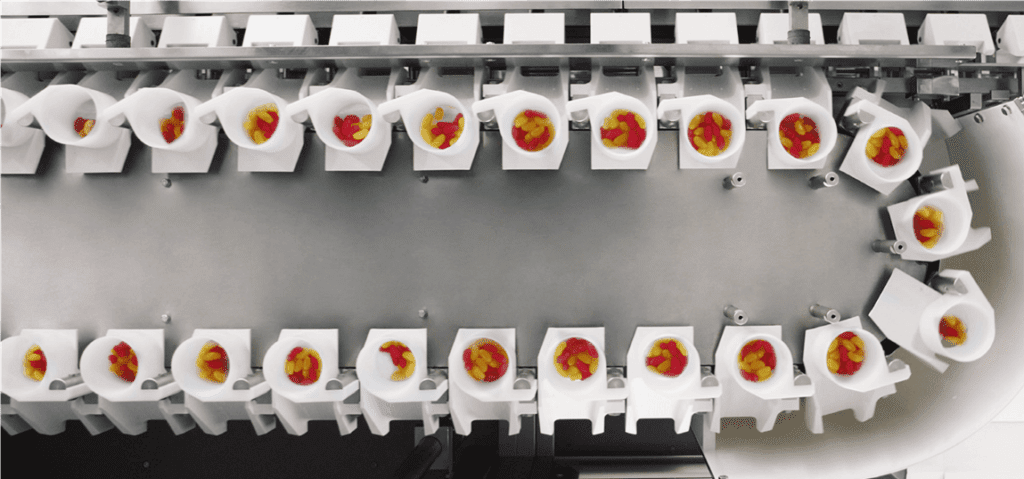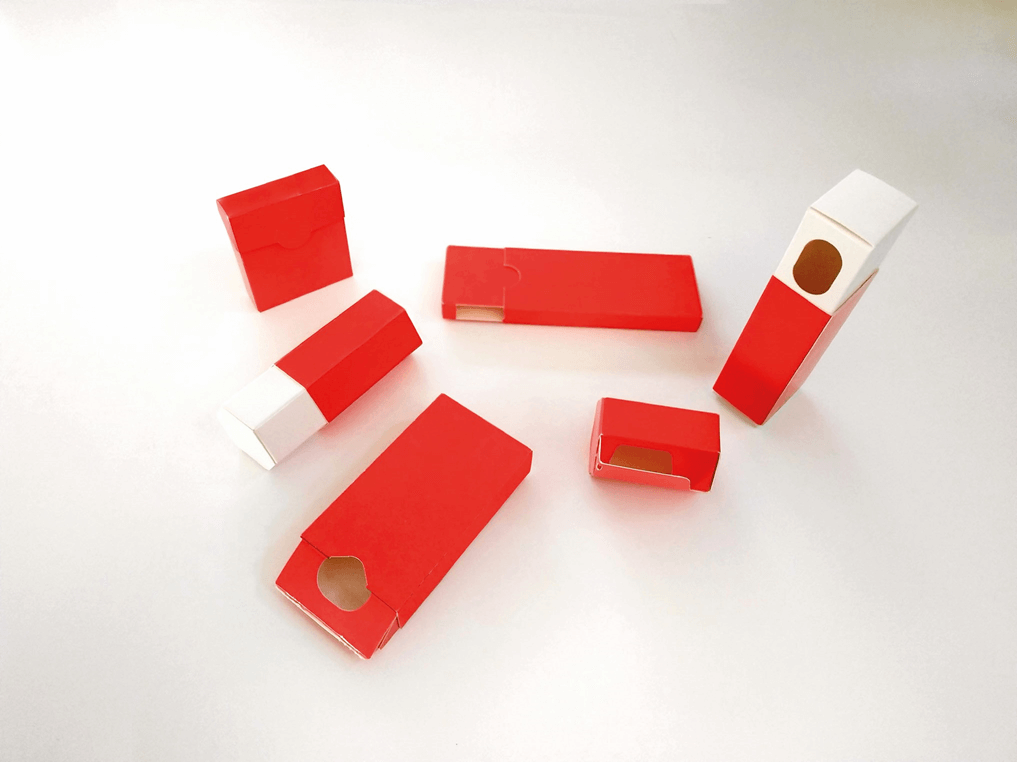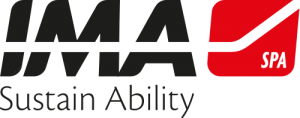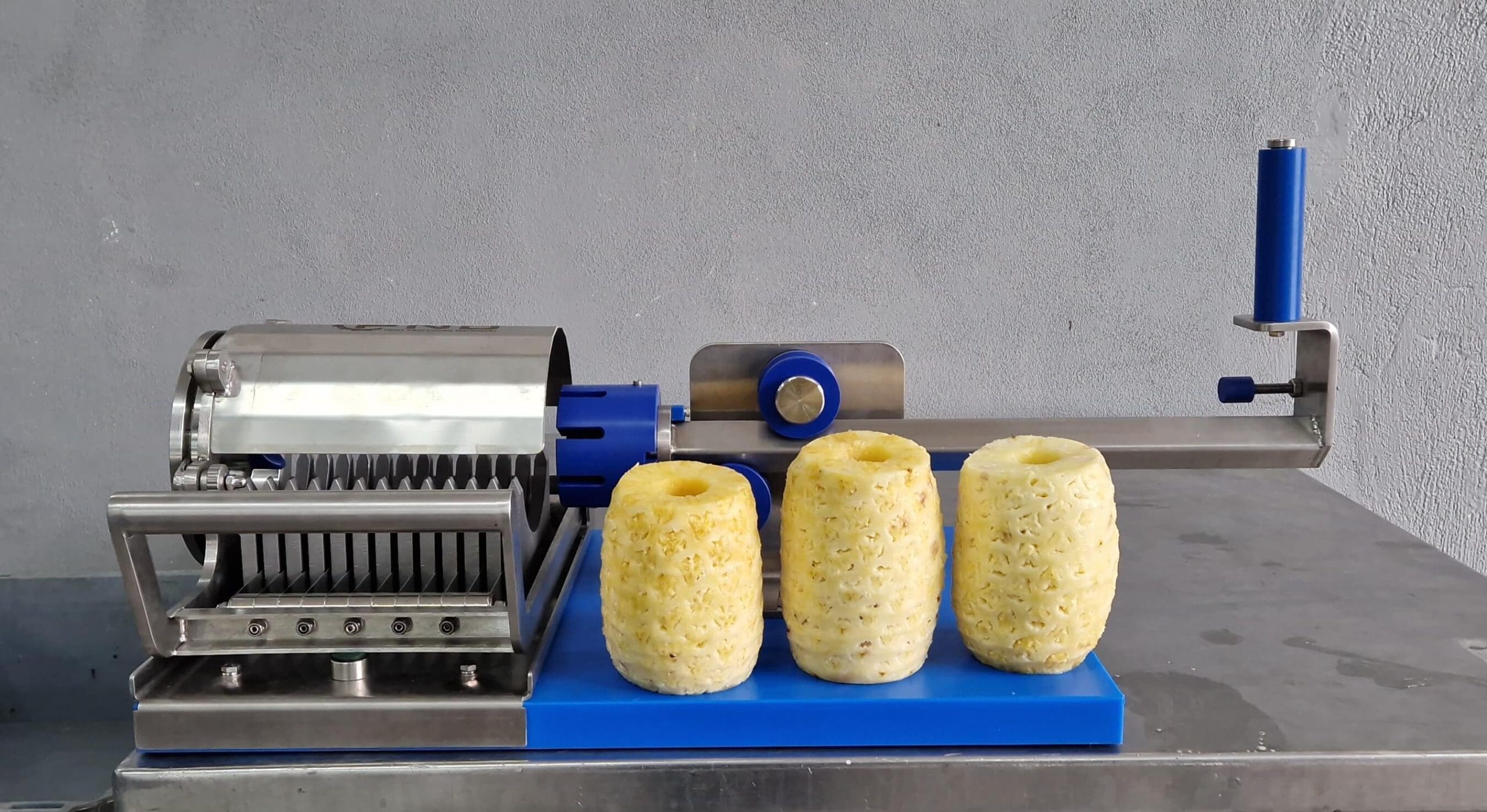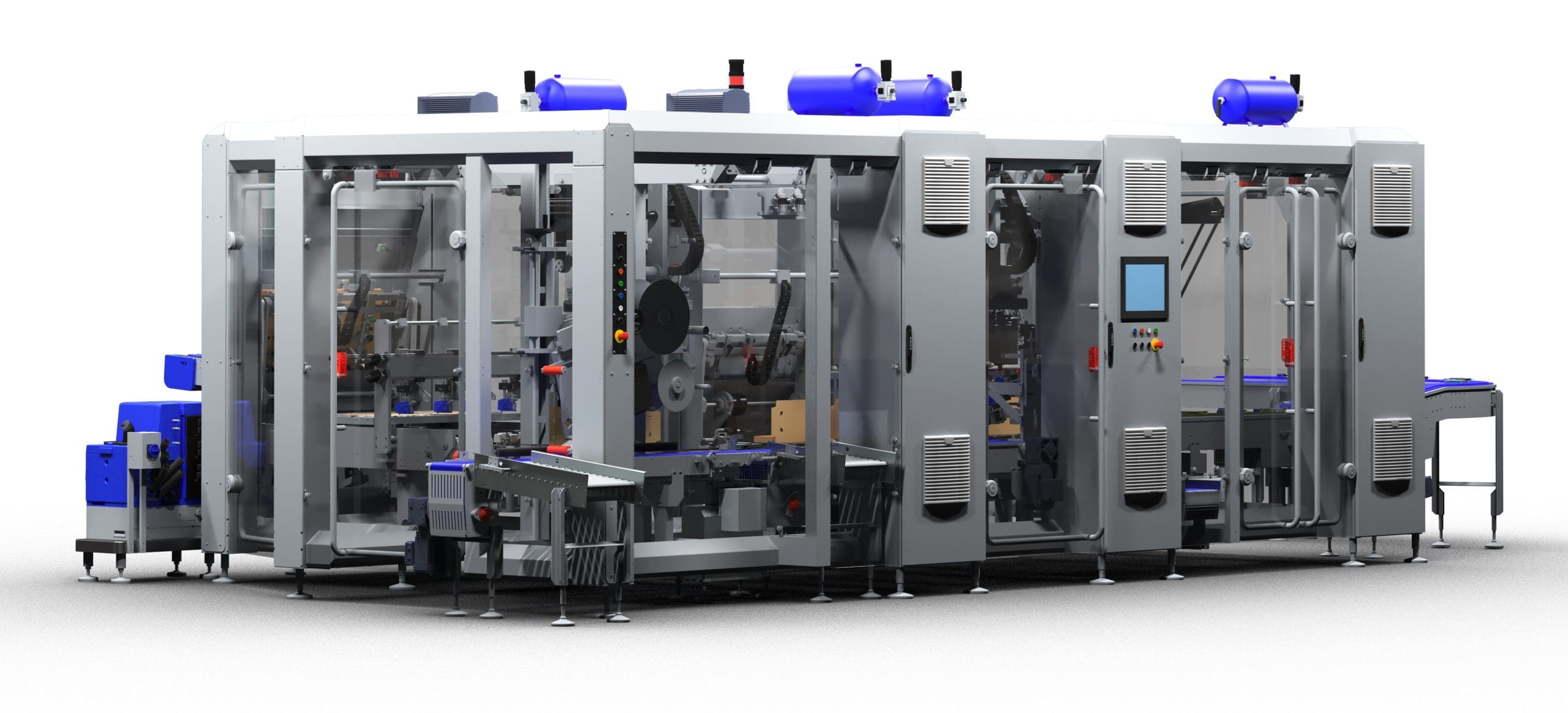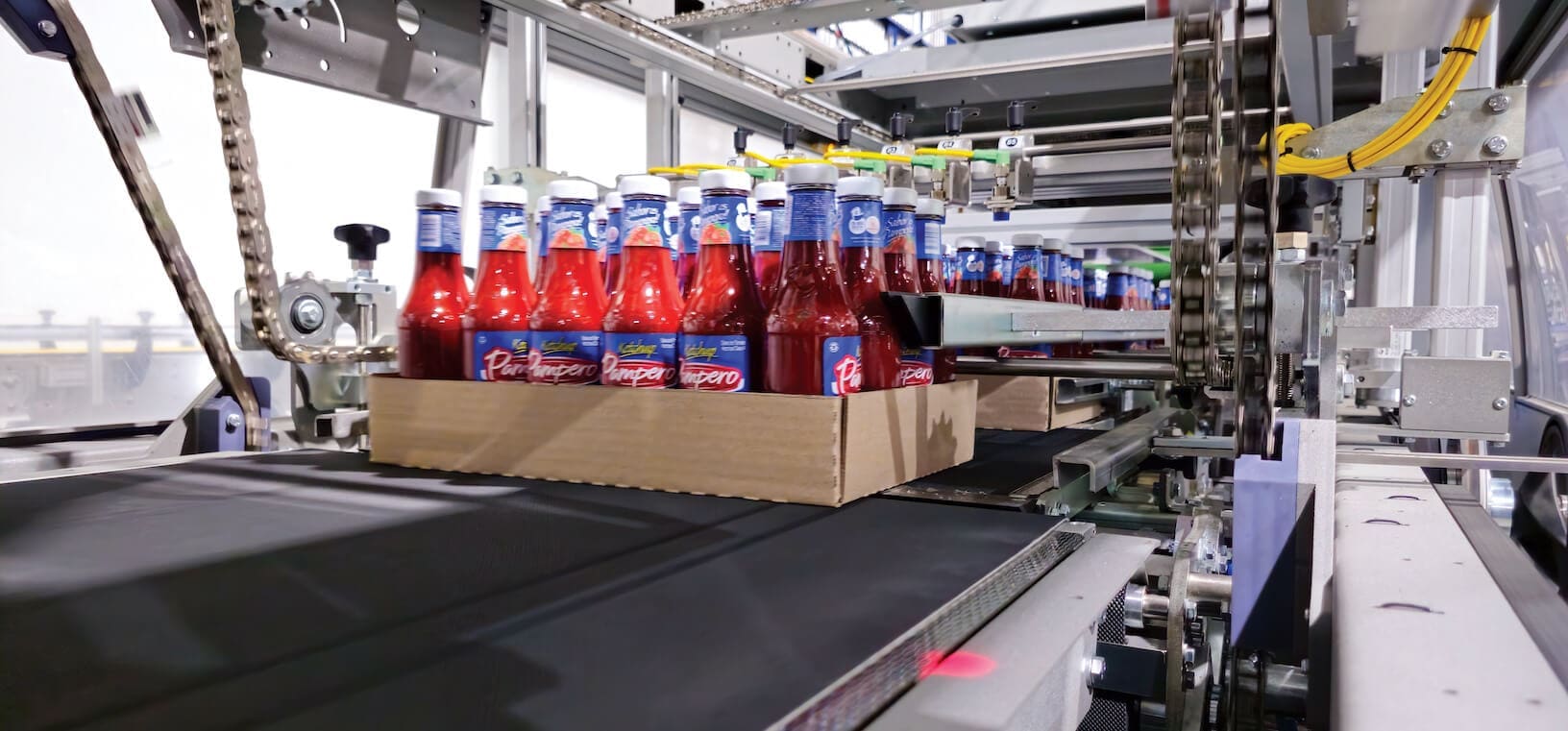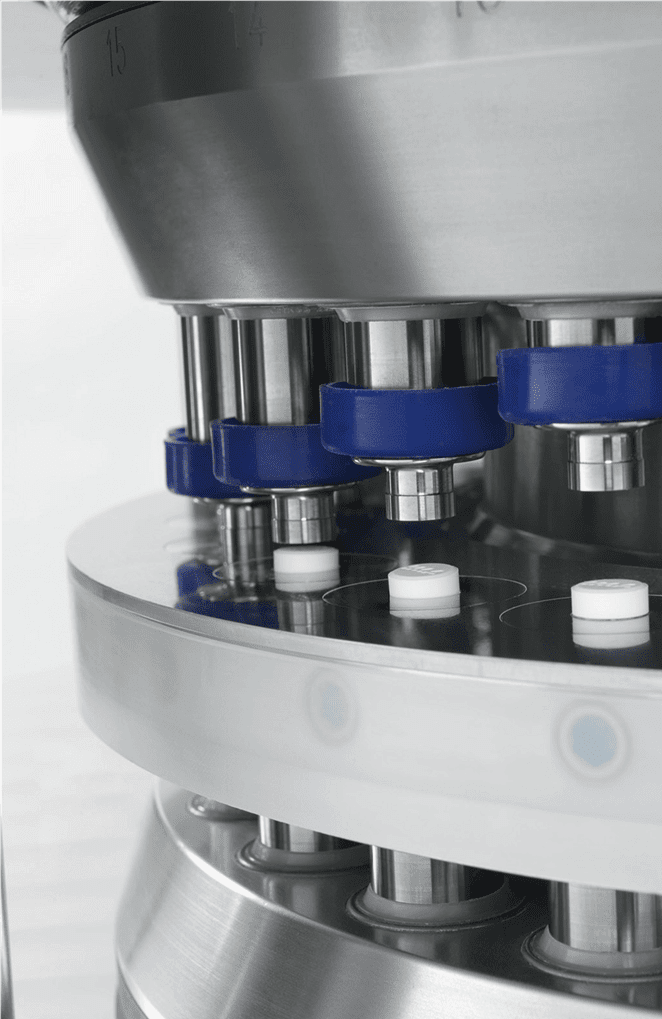
Thanks to its wide technological offer, ranging from processing to primary, secondary and end of line packaging solutions, IMA is a strategic partner for confectionery companies, able to design and manufacture complete and customized lines.
A knowhow recognized around the globe, which is enriched today by new solutions, ensuring higher sustainability, easy to use and production flexibility. We deepened this topic with Daria Lolli and Fabio Tozzi, who follow sales respectively at IMA Active division, processing side, and at IMA GIMA division, packaging side.
The world of technologies is constantly evolving. According to your experience, which are the new must in this sector?
Fabio: Without any doubts, sustainability is becoming a central factor; and, in some cases, even influential in purchasing decisions. Today consumers are more and more informed and aware: they select products whose packaging is easily disposable. This leads manufacturing companies to look for solutions able to reply to this new requirement, while preserving the quality of their products.
Daria: Not only is this trend valid for the packaging: also the product itself must respect the environment. Let’s think about chewing gums case. The downward sales trend recorded in the last few years may be due to the fact that the raw material, they are made of, requires almost 5 years to biodegrade.
Nevertheless, some confectionery producers have found a solution to overcome this: they have replaced synthetic rubber with organic one, which makes the chewing gums 100% biodegradable in a few months. Besides protecting the environment, another central topic for this sector is the personal well-being. Just think about the increasing use of food supplements.
Confectionery products, when enriched with functional ingredients, like vitamins, minerals, ginseng or hyaluronic acid, become an alternative way to take these elements in a shape different from pharmaceutical tablets and capsules.
Which packaging solutions do you offer to customers looking for more eco-friendly technologies?
Fabio: IMA GIMA has always worked with their customers in the design of specific packaging, finding the right combination of marketing and applicability on technologies. In collaboration with manufacturing companies, our technicians test each new material on the machines, identifying those that best adapt to the different technologies. In this way, we assist our customers with our experience, to help them in creating sustainable packaging made with recycled, recyclable or biodegradable material.
Can you make us a few examples?
Fabio: As far as primary packaging is concerned, we propose containers with different shapes and functionalities made of carton, PET or hybrid materials, all of them achievable on our vertical platforms. These types of packaging help in renovating the image of the product on the shelf or in replacing injection molded containers, significantly reducing packaging ecological impact.
IMA GIMA range of vertical fillers includes several models able to reach a speed of up to 500 ppm. According to the product to be handled (dragées, candies, mints, liquorices, jellies, dried fruit, chocolate, chewing gums and others), our machines can be equipped with dedicated feeders such as mechanical or electric counting systems, volumetric dosing systems and multi-head scales. News also in the difficult field of over wrapping.
A pack of chewing gum, candies, dried fruit or other, needs to be over wrapped for protection, preservation of the aroma and/or for multi pack. On the basis of the level of the barrier effect that we want to reach, different types of material can be used.
We have already tested successfully on our over wrapping machines alternative materials like biopolymer, compostable transparent material, paper based material which can be recycled together with paper, and mono-material easily recyclable.
Going back to chewing gums, which are the new processing technologies proposed by IMA Active division?
Daria: Chewing gums are traditionally produced by preparing a dought, which is then extruded or flattened with rollers, cut in single units, cooled and eventually coated. Such an equipment needs space and it may require a huge investment for who is willing to start from zero. Besides, a lot of functional ingredients, which more and more often are added to recipes, are vulnerable to thermo mechanical stresses: their beneficial effects risk to fade away before the product reaches the mouth of the consumer.
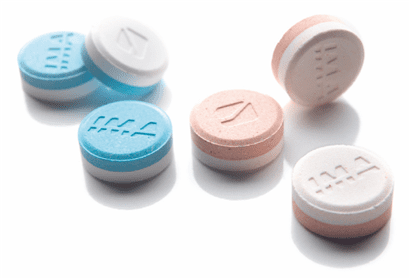
Therefore, IMA Active proposes an alternative solution for the manufacturing of these new generation of chewing gums, which is cheaper, more compact and flexible: PREXIMA tablet presses, for the direct compression of powders.
How does PREXIMA work?
Daria: The different ingredients, after being mixed, are fed into the PREXIMA, where the direct compression occurs. The process is quick and the mechanical stress of the product is minimal, so that the effect of functional ingredients is not activated unless it is the right moment, that is while chewing.
Also ingredients which are vulnerable to high temperatures are safely treated, thanks to PREXIMA high yield motorization. The ventilation system alone is enough to keep under control the motors temperature and heat is not transferred to the process area.
Which level of flexibility does this tablet press ensure? Daria: Huge flexibility. The shape of the final product depends on the shape of the punches tip and of the die hole. It can be simple, round or rectangular, but it can become more complex, like the shape of the heart or of the teddy bear face, just to mention a few. It is easy and fast for the operator to change the tooling on PREXIMA.
Furthermore, it is possible to obtain bilayer chewing gums with PREXIMA 800, using powders with different colors and consistency, each one with its own specific function. A technology which ensures maximum reliability, process repeatability and minimal waste of raw material and energies.
Very innovative technologies. Are they also easy to use?
Daria: “High” innovation does not mean “more complicated”. In fact, our machines aim to be simple to use and quick to clean. Without forgetting that we have a laboratory with technologists expert on processes and raw materials, and equipment available to carry out tests with our clients: we are ready to support them in the development of new products or in the optimization of current processes.
It is not rare to see customers willing to proceed with a technology transfer, making some manual phases of the manufacturing process automatic. I think Fabio agrees with me, our experts in processing and packaging are looking forward to having the chance to work side by side with our clients to make their dreams come true.

